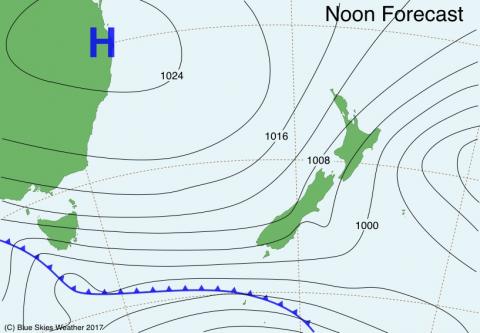-
More
Weather Forecast
- What's On
- Programmes
- Noticeboard
- Tuning
- Services
- DVD Shop
- About
- Home
- National
Wednesday 14th January, 2015
Petrol prices remain low, having fallen consecutively more than 20 times since October.
There is some variation between regions, stations and companies, but fuel is up to six cents cheaper in many places.
That's compared to what it was just a few days ago.
In Dunedin the price of 91 is sitting around $1.70 per litre.
Diesel has also dropped.
The cost cuts are a reflection of low barrel prices for crude oil.
There are suggestions that prices could drop even further, before picking up again later in the year.
Tuesday 13th January, 2015
Kmart and Salvation Army staff are thanking locals for their generosity, after thousands of gifts were donated to a combined Christmas appeal.
Last month people placed 3,450 presents under a Christmas tree in the Dunedin Kmart store.
Those gifts were then distributed by the Salvation Army to local families in need at Christmas.
It was part of a nationwide appeal, which saw almost 43,000 gifts donated.
About $10,000 was also pledged.
Kmart Dunedin store manager Ed Levey says those who donated are the "shining stars" of the festive season.
Monday 12th January, 2015
Building activity continues to increase throughout the country, with housing consents hitting a seven-year high.
The peak for consents was reached in November, when more than 2000 new dwellings were consented.
Many of those were for apartments in Auckland and Christchurch.
Those areas accounted for 70% of consent activity throughout the country.
In Dunedin housing activity remains relatively static, but this time of year is busy for tradesmen working on student flats.
Friday 19th December, 2014
Gross domestic product is up slightly, buoyed by growth in the primary industries.
Milk production, oil exploration and gas extraction have all increased.
And that's pushed GDP up, with some of the strongest growth seen in 15 years.
Agriculture and mining are key drivers of the move, while the forestry and logging industry is down.
Manufacturing activity has also grown.
Overall GDP increased 2.9% in the year ending September.
That's put the size of the economy at $237b.
Thursday 18th December, 2014
The country's account deficit has grown, and it's now the largest it's been in almost six years.
An account deficit means the country's earned less than it's spent.
It relates to offshore income and overseas expenditure.
At present the country's got a deficit of $2.5b.
That's a debt increase of almost $500m from June.
It's a result of export goods falling in value, mainly due to the dairy sector.
And the value of imported goods has risen, led by increases in aircraft and oil stocks.
Wednesday 17th December, 2014
The number of dairy cattle in New Zealand continues to rise.
Statistics New Zealand says there's now about seven million dairy cattle in the country.
Generally good pastoral conditions over the last 18 months have contributed to the increase.
But sheep, beef and deer numbers have fallen.
There were about 30 million sheep nationwide, as at June.
That's a fall of just over one million in the last year.
Tuesday 16th December, 2014
Wholesale trade for groceries, liquor and tobacco has increased, heading into Christmas.
Statistics New Zealand reports that trade sales of those products are up by $74m.
That's in the last quarter of this year.
Trade sales of motor vehicles and associated parts are also up.
That sector has risen by 2% - a value of $39m.
The trend for total wholesale trade has generally been rising over the last few years.
The total value of trade sales in the September quarter was $22b.
Friday 12th December, 2014
Prime Minister John Key has been in town, but he's kept his visit quiet.
It's understood he was involved in several private meetings.
There was no official word of his visit to Dunedin, and he didn't make any public appearances.
His last public visit to the city was in mid-September.
At the time he toured the new offices of Silver Fern Farms, and also visited local technology company AD Instruments.
Wednesday 10th December, 2014
Fonterra has reduced its forecast farmgate milk price by 60 cents.
The price has dropped from $5.30 per kilogram of milk solids.
The new forecast price is $4.70 per kilogram.
Fonterra chairman John Wilson says farmers were expecting the reduction.
But he says it will still put pressure on farming budgets.
The price drop is a result of the volatility in global dairy markets.
Milk supply is currently greater than demand, which is forcing prices to drop worldwide.
Wednesday 10th December, 2014
The month of April was filled with highs and lows.
The Duke and Duchess of Cambridge visited Dunedin, and a local man died in an inner-city bar.
We take a look at those stories, as well as others making headlines at the time.


